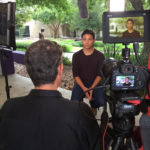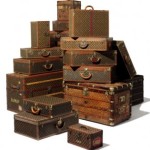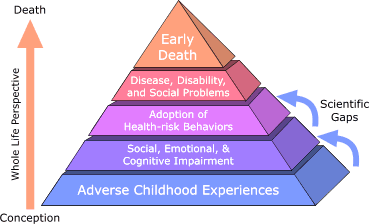 CLICK to BUY “Don’t Try This Alone”!
CLICK to BUY “Don’t Try This Alone”!
“License to Parent,” the new film by George Siegal, will be out soon. He interviewed kids to see how it felt to be parented, and often it wasn’t good (photo, left). In a May 6 post titled “We Have a Parenting Problem,” George writes that “parenting is the most important job in the world,” but “many parents have no idea what they are doing… what about the rights of the child? It’s a strange balance in our society, if you think about how badly a parent is allowed to fail before the state steps in and does something…”
George wants new programs such as Minnesota’s state-wide early childhood family ed plan, with over 40,000 parents enrolled. He’s got more ideas, and all these programs are a great first step. Click here for the details: http://www.acesconnection.com/blog/we-have-a-parenting-problem
But George’s post has also sparked a debate about what else is needed.
“Baked-in” Trauma Over Generations
“I believe many of us parent the way we were parented, and that the presence or absence of Adverse Childhood Experiences (ACEs) is often passed down and generational,” Boston writer and children’s advocate Christine Cissy White commented May 7 on George’s post.
There is often “community-wide trauma,” she notes; “some adults and families are traumatized by systems. We can’t look at kids without looking at families they are being raised by, and we can’t look at parents without looking at a wider community context.”
Christine is so right! The problem is that “poor parenting” gets actually baked into parents’ brains over generations. So parents need personal healing, as well as education and information.
“Parenting well does not come naturally. What comes naturally is parenting the way we were parented,” as Allan Schore, the world leader on attachment, often says. (1)
Almost all parenting that hurts kids goes back 3, 4, 10 or more generations. It’s “inter-generational trauma” that becomes ingrained in the parents’ subconscious, over and over, and unseen by anyone.
Attachment from conception to age 5 literally creates a child’s brain. When that parent’s brain was developing as a child, if they had their own traumatic childhood, then that’s physically the only parenting “software” they received.
So that’s the only parenting “software” they have to give.
That parent is almost physically incapable of passing on anything but what they received, which was trauma, to their own children. For extended documentation see my book, “Don’t Try This Alone: The Silent Epidemic of Attachment Disorder” at https://www.amazon.com/dp/1976120128
Butt End of Evolution
 In Chapter 17 of my book, I take it back to my great-grandmother. I’m the logical consequence of evolution, the “Butt End of Evolution,” I say. “Fear has been bred into our neurons since the cave days; it’s called the ‘negativity bias’ of the brain. Brains that feared more were the ones that survived to pass on genes. (2)
In Chapter 17 of my book, I take it back to my great-grandmother. I’m the logical consequence of evolution, the “Butt End of Evolution,” I say. “Fear has been bred into our neurons since the cave days; it’s called the ‘negativity bias’ of the brain. Brains that feared more were the ones that survived to pass on genes. (2)
“Finally my great-grand parents faced so much fear in Europe that they traveled from England to South Africa to Australia to California in the bellies of steamers, having 13 children in 13 different cities. My Mom’s mom was the twelfth.
“Babies need a mom’s attention to grow brain structure. How much attention could #12 have gotten? Do the math. Poor immigrants went in steerage; #12 of 13 kids born in hellholes? They lived in fight-flight 24×7. That ramped up cortisol gets frozen into our back muscles. That’s why my Mom had back pain all her life and so did Grandma; we all had the same trauma as infants.
“Grandma couldn’t have gotten much more parenting than the luggage! She had no parenting software to give Mom. ‘Mothering well doesn’t come naturally,’ says Allan Schore. ‘What comes naturally is mothering as you were mothered.’
“Great-grandma treated Grandma like luggage, so Grandma only knew to treat Mom like luggage. Mom didn’t even want the luggage. I’m third-generation luggage. I have so much emotional baggage, I couldn’t even procreate. I was too terrified of what I felt during my own childhood, to have children. Shrinks call it ‘refusal to repeat.’
“Many mothers have trouble handling their own emotions,” says Schore. If she’s too preoccupied, “she just can’t read the baby’s tone… facial expressions and gestures. You see inter-generational transmission of these deficits.”
Wounded Attachment Needs Attachment
For these reasons, healing parental trauma and what it does to their kids, and getting a driver’s license, are just different. At least when I got my California license in 2011, we read a brochure and checked off boxes on a test. That can all be done by computer, no humans involved.
But traumatized parents have taken traumatic damage during their own childhood attachment relationships. It goes really deep.
And what was damaged by an attachment relationship, can only be healed by a new human-to-human attachment relationship.
Parenting healing must include major face-to-face, person-to-person healing done by other human beings, with the parents, in support groups, therapy groups, and sometimes individual therapy. This will take months and years, depending on the depth of the parent’s emotional hurts. It needs the latest attachment and brain science healing modalities as described in my book.
Certainly we need to keep up the educational wing of promoting trauma-informed care in parenting, and films on parenting are important in this.
Yet parents will keep traumatizing children unless and until the parents themselves receive major healing to rewire their own emotionally-hurt brain circuits.
That takes time, emotional depth on the part of the healers, and major social investment. How would we possibly do this? That’s an excellent question; the only answer I have so far is that I just published a book about it. I sincerely wish I had more of an answer.
But we must at least state the problem clearly, and be careful not to ignore it because it’s so difficult to address and so huge.
The problem is that traumatized parents themselves need personal healing, or they will continue to pass on their trauma, and so will their children.
Footnotes
(1) Schore, Alan N. (6-15-11). (6-15-11). Affect Regulation and Mind-Brain-Body Healing of Trauma. NICABM.com/treating-trauma/?del=programspage
(2) Hanson, Rick. (9-28-11). Neurodharma: How to Train the Brain Toward Mindfulness. NICABM.com/mindfulness-2011-new/
Comments are encouraged, with the usual exceptions; rants, political speeches, off-color language, etc. are unlikely to post. Current software limits comments to 1030 characters (2 long paragraphs).
News blogs expand on my book “Don’t Try This Alone: The Silent Epidemic of Attachment Disorder.” Watch as my journey of recovery teaches me the hard way about Adult Attachment Disorder, Developmental Trauma, Attachment Theory, and the Adult Attachment Interview (AAI).
Copyright © 2018 by Kathy Brous. All right reserved. No portion of this website, except for brief reviews and live links to this website, may be copied or used in any form or manner whatsoever. All use must show prominent and clear attribution to Kathy Brous at https://attachmentdisorderhealing.com.
Medical Disclaimer: This website is for general information purposes only. It is simply my own research. Individuals should always see their health care provider or licensed psychotherapist before doing anything which they believe to be suggested or indicated herein. Any application of the material on this website is at the reader’s discretion and is the reader’s sole responsibility.
![]()



I have just discovered your wonderful blog. I recently learned about a parenting intervention program called Circle of Security, that Dan Siegel mentioned in his latest parenting book. They have seem to be having positive results.
https://www.circleofsecurityinternational.com/
I am glad, that you shared all the information here. But, as for me, it would be better, if you made a podcast of it. What do you think about that?
Thank you for your wonderful contribution to the silent killer in our society which is growing I believe. I have been trudging for 35 years initially no idea that the origins were an attachment disorder. Surveying three generations of addictions, stone deafness and more I now totally agree. It is generational. Appreciating you and your life work.
I’m also writing a book — I have an important piece of the solution puzzle.